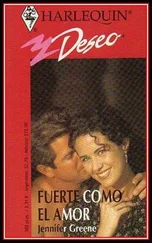“How is the baby?” Frank asked.
“She’s beautiful. An angel.” I felt my throat thicken, a hint of the sadness that came over me when I nursed and held the baby that wasn’t really mine, that there were no daughters in my future.
“Rory,” he said. “I like that name.”
“Me, too.”
“So,” he said, and settled his hands on his legs. “You like New York?”
“It’s fine. I miss the boys when I’m away. But the money will help.” Bettina had insisted on paying me a thousand dollars for the day and night I was up there, much too much money, I told her, but she wasn’t taking no for an answer.
“I miss them, too. At night.” He pressed his lips together like he wanted to suck the words back into his mouth. Then, he said, “I miss us being a family. I miss you.”
I didn’t answer. I’d done the hardest work of my life, the thing none of the clone-girls in that story I’d read had done. I had broken free from my destiny. I had taken myself to the city, found money and a place to live. I could stay — Bettina hadn’t come right out and said it, but I knew if I offered to work as a nanny, she’d hire me, and I could bring the boys to New York and find a place for us there. I could have people like I’d had back in high school, people to talk to, to eat with. The whole world lay open before me. . and now Frank probably wanted me to turn away from it, to come home and be what I was before.
“You weren’t wrong to be upset with me,” said Frank. Startled, I turned to look at him. His eyes were narrowed, his body stiff. “I wasn’t being the husband you deserved.”
This was unexpected. “Maybe I was wrong, too,” I said.
Frank shook his head. “You were trying to help us. And if I hadn’t been so stubborn about letting you work. .” He dropped his voice until I could hardly hear him over the drone of the crowd, the noise of people coming and going. “I guess maybe you were lonely.”
I nodded, almost unconsciously. Frank kept talking. “We can sell the house, move to Philly. Spencer’s starting nursery school in the fall, so you’ll have some time. You can go to college, if you want.”
I felt a pressure inside of me building, a sob or a shout, I wasn’t sure yet. “You love that farm. It’s all you ever wanted.”
“I want you more. And I got a new job,” he said.
“With the airlines?”
“Nah. Teaching.” He took my hand. “I did so well in my classes they asked me to stay on. I’m still part-time at the airport, but it’s good money. Good benefits, too.” He paused, like he was steeling himself. “I looked it up online. Community college has classes online, or in Center City.”
I looked down at our fingers entwined. I’d thought about giving him back my engagement ring — it had cost almost two thousand dollars and was by far the most expensive thing outside of his truck that Frank had ever bought — but I hadn’t taken it off yet. I wondered if I would have made different choices, if I could have gone back in time, knowing what I knew now. Part of me thought I would have undone the surrogacy in an instant, wiped the slate clean, done anything to keep my marriage intact. Another part of me thought that I’d done just the right thing, that the pain of leaving him was the cost of a new and better life.
“Come home,” said Frank, his grip on my hand tightening. “Stay with us.”
I sat there, not answering. Rory was getting bigger, filling out, holding her head up with her clear eyes open, taking in the world. I could send breast milk by FedEx and visit the baby on the weekends. I could start taking the classes I’d planned on — an English course, and one on computer programming — but I could do them at home, online, instead of in New York. I could give my boys the world of the city, the museums and the plays and the galleries and the musicals — but keep my house, and my husband. I could have a bigger life, like Nancy, like what I’d come to want in the last few years, only I could have it with Frank. It almost seemed like too much to hope for, but I smiled at him, then reached for his cheek, pulling him close.
BETTINA
One Wednesday morning in early August, when I was interviewing the third nanny of the morning, the telephone rang. “Someone’s here to see you,” said Ricky, our doorman.
“Send her up,” I said, looking at my watch. If it was the fourth applicant, she was twenty minutes early, and if it was the first girl, the one who was supposed to have been here at nine, she was two hours late.
“She says she’d rather meet you in the lobby,” said Ricky. “It’s your. . it’s Mrs. Croft.”
“Excuse me,” I said to the applicant currently perched on the couch. I’d already decided not to hire her. True, her French accent was lovely, and her references were solid, but anyone who’d show up for a job interview wearing jeans with the words HOT STUFF spelled out in sequins across the back pockets was not someone I would be employing to care for a child.
I stuck my head into the nursery to make sure the baby was asleep. Then I tucked the baby monitor into my pocket, told the chef and the maids where I was going, then pressed the button for the lobby.
India was waiting for me behind the doorman’s desk. “Hello,” I said, having rejected Well, look who’s here on the way down. She was casually dressed and she was tan, which infuriated me. I imagined her lying on a beach somewhere while I’d been handling the details of her husband’s funeral and her baby’s birth. “Did you have a nice vacation?”
She didn’t take the bait. “I had some thinking to do.”
I stood there, waiting, looking her over. If she was wearing makeup, I couldn’t tell. Her hair was pulled into a ponytail, and her roots were badly in need of a touch-up. I saw an inch or two of drab dark brown at her scalp before her hair made the transition to glorious caramel bronze, and there were wiry silver hairs threaded through the brown. She wore jeans — probably they were the six-hundred-dollar kind they sold at Saks, but they were still jeans — and a plain short-sleeved T-shirt. No earrings, no jewelry at all, except for her wedding ring.
“I loved your father,” she said.
“Which is why you didn’t bother showing up for his funeral.”
India flinched. “I have a hard time with. . well. I was having a hard time with all of it.”
“Oh, really? Because I thought it was a total picnic. Do you have any idea what I’ve been dealing with? Any idea at all?” I was shouting, I realized, and Ricky was staring, although he was trying not to, and so was my neighbor Mrs. Schneider, collecting her mail, with her little Yorkie riding in her purse. I took India’s arm — it was, possibly, the first time I’d touched her since a brief, obligatory hug at her wedding — and dragged her back toward the service entrance. There was no way I was letting her come upstairs.
“I’m sorry,” she said. She’d followed me willingly enough, and now she met my gaze steadily, not fidgeting or flinching. I wondered if she was on heavy-duty antidepressants, or if she’d spent the last few months sitting on a beach, hanging out in a sweat lodge, doing yoga. Maybe she’d met up with my mother in New Mexico, sampled some of the Baba’s offerings. That thought made me even angrier.
“You’re sorry. That’s great. That’s a big consolation. I got a call from your fertility clinic because your surrogate was freaking out. She hadn’t heard from you, nobody knew where you were, and, in case you were confused, having a baby is not like ordering a pizza, then deciding you’d rather have Chinese. You can’t just decide you don’t want it.”
“I know.” No ducking, no tears, no excuses. . just that same strange, narcotized steadiness. “I didn’t do the right thing. But I’m back now, and I won’t run away again.”
Читать дальше












